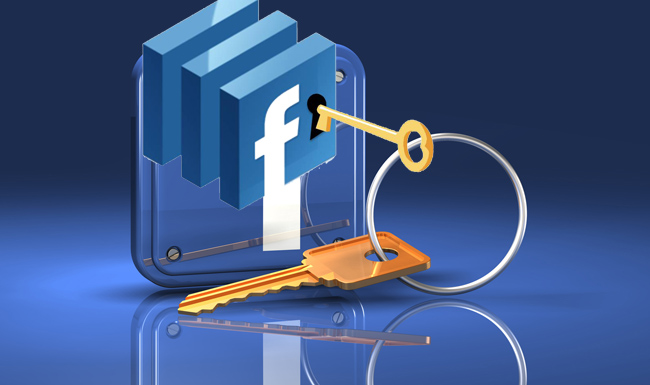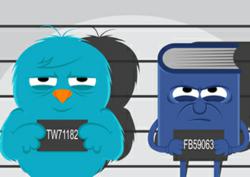Social media profile hacking will not be going away anytime soon. There are easy ways to identify if a user profile has been hacked, but users should keep up-to-date on the rising problem.
Just in one year, I have identified two, possibly three, LinkedIn user accounts that were hacked. During my first encounter, I actually thought the profile account was what some of us on LinkedIn call a “bot” profile. Some of us define a bot profile as an account that has no real true identity, can change names multiple times, sometimes will frequently state “oil and energy” as their industry of preference, and will change a profile photo reflecting many different stolen identity images. We have all seen updates from our network identifying fake profiles or bots. The real definition of a bot is here.
One encounter came in from a connection in South Africa, who, when Googled, had a great reputation as an international ambassador who helped people all around the world. There were many articles published about his life achievements. One day, I received a message via InMail stating that his wife was dying, and could I please make a donation to help save her life. He stated he had no money and asked me to wire money to South Africa. This was my first experience of a user account and identity being hacked and stolen. I had many positive exchanges with the user, and something was not right. Not knowing for certain that the account was officially hacked, or if it was a fake account all along, I removed the connection and submitted the incident. I believe the account still exists which seems rather odd.
Another run-in occurred when I searched for a connection that I had been working closely with and two names appeared. I went into the later and saw that there were only 5 connections. The other account was unchanged. So, an imposter account had been set up that could have sent messages to anyone pretending to be my connection. I notified her, and she was able to resolve it quickly with LinkedIn. I often wonder what would have happened if I had not caught that hack. The user works in sales and there could have been information shared that you would not want hackers to have visibility to. I now see this happen to users now and then and just notify them.
Hacking as we all know needs to be taken seriously, more so each day as digital continues to embellish us. My prediction is that we may see fake videos soon, in other words, videos of us made by hackers. Anything is possible! Although we are social media users and not large corporations, we all need to report any suspicious activity on the internet. Our personal identity is always at risk if you do not safeguard it. I think it is fair to say that you should search your name in the search bars on your social media accounts often. I also promote in many of my posts that users should never use their personal email address on social media.
Are your passwords protecting you? Your passwords are worthless according to an article by author Laura Hautala:
Another option is to set up google alerts. Wait, back up, that article above is just insane!
Below Are 5 Top Trends and Tips in Social Media Account Hacks to Watch?
#1. More Than One Name Appears In Search
If you search for a user on LinkedIn that you have a connection with, there should only be one name. Professional Networkers do not set up multiple profiles and it is against the User Agreement Policy. The same rule should apply to other social media platforms, but I do see instances where users on different social platforms have numerous accounts just adding a 1, 2, 3, 4 after their name for instance.
#2. You Notice Strange Messages
If you receive messages that are asking you for money that is a big red flag. Please help save my dying aunt, wife, child is often used. Hackers will try and take advantage of users by attempting to think we are naive and tap into our emotional intelligence. We all feel sorry for anyone who is sick, but professionals do not send out InMail asking for your contributions on any Social Media Platform. We do see pages in our feeds from Gofundme.com, and many respond and do help people in need.
#3. Multiple Name Changes
I have seen one user change his name at least a dozen times when I reported an imposter account. He is still a LinkedIn user stating that he works in the Oil and Energy business. I continue to report this one account, but when I block him, the account continues to show up in updates with a new identity. I am not on the LinkedIn Police Force, but really? Just shut down the user account.
#4. Job Title Changes
This one is popular. I have seen users change their job titles as often as weekly as if none of us are noticing the changes in location and titles. Really? It takes a while to catch on, but I am not referring to adjusting a job title header to spruce up an account, but actual multiple industry and location changes. It must be hard to locate to a new state every week!
#5. The Company Listed Is Non-Existent
Google is our best friend. Earlier this year, I had over 25 people from a company that apparently existed in Silicon Valley attempting to connect with me on LinkedIn. The same accounts were attempting to connect with a few other connections consistently every day. When we blocked the users, they would just set up new account names, using the same company name which did not exist. Fast forward, they began sending invites using another company name that did not exist. This has probably been my most annoying experience to date. This invite harassment went on for months before they finally moved on to play another game. The companies did not exist, were not startups, and there was no history of them on Google or any search engine. The worst thing about this experience was that I had to invest time in trying to escalate it, blocking and messaging my other contacts about the situation. Get a life, hackers!
“According to a survey by the University of Phoenix, nearly two-thirds of U.S. adults who use social media say they are aware that their accounts have been hacked.
Anyone is subject to being hacked. ‘Dadada’ recently hacked Mark Zuckerberg’s Social Media Accounts. Read the article ➤ here. Buckle down your Facebook security!

Below is an interesting blog by author @kevinroose
How To Not Get Hacked, According To Expert Hackers

There are digital tools being developed to help you monitor your social media accounts and protect them from hacks. Check out this video by Nexgate ProfileLock Security Demo below:
For More Information On How to Prevent a Social Media Hack – click here
Do you have an interesting hack story? If so, please share your thoughts.
Smarter Marketing Starts Here
Subscribe to receive the latest AI marketing and CTV ad tips that help you stay ahead - delivered straight to your inbox. Join our newsletter!

